EDUCATION IN CRISIS
Soweto residents repurpose abandoned state schools that were closed ‘without consultation’
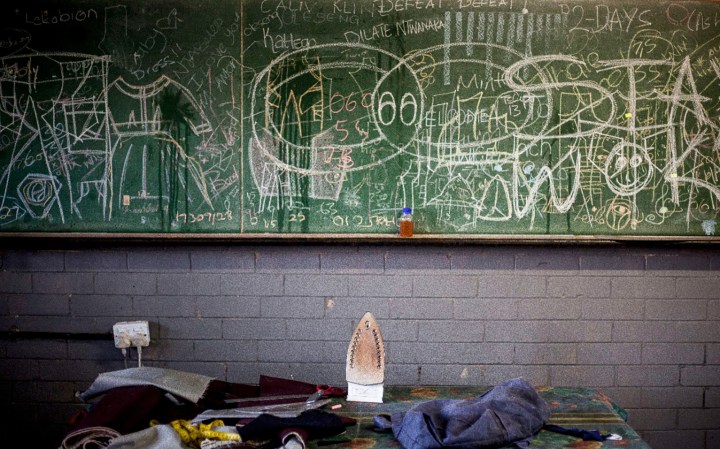
Following the closure of a number of government schools, many Soweto residents – who say they were not privy to the process in the first place – have found a new purpose for the abandoned buildings.
It is almost unimaginable that these schools were once jewels of their communities. Some of the closed and abandoned Soweto schools now double as drug addict hangouts at night and hosts for religious gatherings during the day.
A number of the schools are in an advanced state of disrepair, with most of the infrastructure vandalised or dysfunctional due to ageing and neglect.
“Low enrolment in schools that falls below the threshold of a normal school was the reason behind the school closures,” Basic Education Department spokesperson Elijah Mhlanga told Daily Maverick on 7 July.
According to the Gauteng department of basic education, the schools were closed for three reasons: declining numbers of pupils attending, multigrade classrooms which led to ineffective teaching and learning, and schools situated on farmland in rural areas.
In the past eight weeks, Daily Maverick visited seven such schools, including Matubeng, Lerechabetse and Phenyo primary schools in Moletsane, Soweto.
The closed schools also include Hlengiwe Primary in White City, Ithuteng Primary in Tladi, Lebowa Primary in Diepkloof, Bakgomana Primary in Diepkloof, Mabewana Primary in Mapetla East, Ndondo Primary in Rockville, Nkwe Primary in Meadowlands, Thesele Secondary in Moroka North and Thulare Secondary in central western Jabavu.
Read more in Daily Maverick: “Kids miss first day of term after protests outside a rundown Soweto school”
Some of the schools, such as Matubeng Primary and Phenyo Primary, are partly used for church services and other religious gatherings, while others including Matubeng Primary and Mabewana Primary are used for residential purposes as well.

Mpho Chautsane (44) works full-time making and repairing shoes at the closed Mabewana Primary – one of the oldest schools in Mapetla, Soweto. (Photo: Gopolang Ledwaba)

Mpho Chautsane at work in a classroom at Mabewana Primary School. (Photo: Gopolang Ledwaba)
Township entrepreneurship, daycare services, religious gatherings, gardening and even drug rehabilitation are some of the projects established by residents at some of the closed schools.
Young entrepreneur Ashley Matuneng, a tailor who works from Matubeng Primary, declined to speak to Daily Maverick during a visit to the school recently, although he did say he had been running his business from the school for the past four years.
By contrast, Tirisano Primary School – which was merged and the few pupils and staff were moved to nearby Sekwati Primary – was stripped by criminals before being demolished in early 2019.
The procedure
Gauteng education department spokesperson Steve Mabona described the procedure followed when closing the government schools:
“Firstly, closed schools have in the past been returned to the Gauteng Department of Infrastructure Development (GDID) as all buildings belong to them. We have a policy that dictates that should a school management decide to close a school, the [school governing body] calls a meeting where the agenda, minutes of the meeting and attendance registers must be kept.
“All parents are to reach consensus, thereafter a community meeting needs to be advertised in the local newspaper and a community meeting held, where reasons for the closure or intention to close the school is discussed.”
Read more in Daily Maverick: “State of education on the ground differs from government reports – youth experts”
The move should be supported by the entire community, he added.
The district director would then draw up a submission with all the documents attached, as evidence, after which the schools are formally deregistered following a notice of 30 days placed in print media.
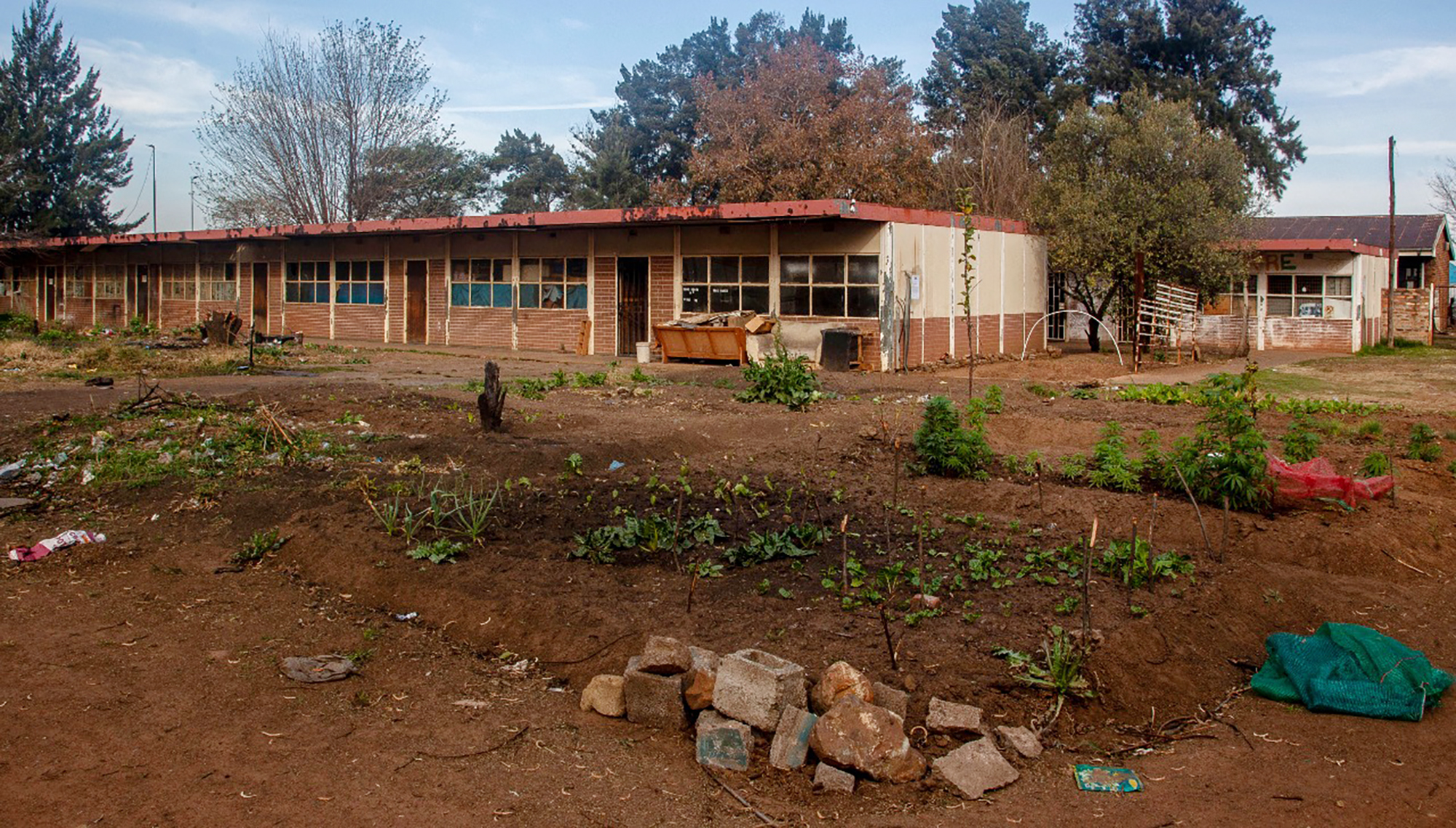
Abandoned: Mabewana Primary School. (Photo: Gopolang Ledwaba)
“Should no objections be received, GDE proceeds to write the promulgation/declaration that is approved by the MEC to declare the school closed and mentioning reasons thereof. It must be noted that the Department is reluctant to close down schools and hand them back to GDID. The schools are repurposed as Special Schools or Early Childhood Development (ECD) Centres or whatever the need may be in the community,” said Mabona.
Many Soweto residents, including those living a stone’s throw from some of the closed schools, told Daily Maverick they had not been privy to the process that closed their schools.
Kelemogile Mogashoa runs an NPO at Matubeng Primary School, which also includes a feeding scheme and a drug rehabilitation centre. She sought permission for these from the school caretaker.
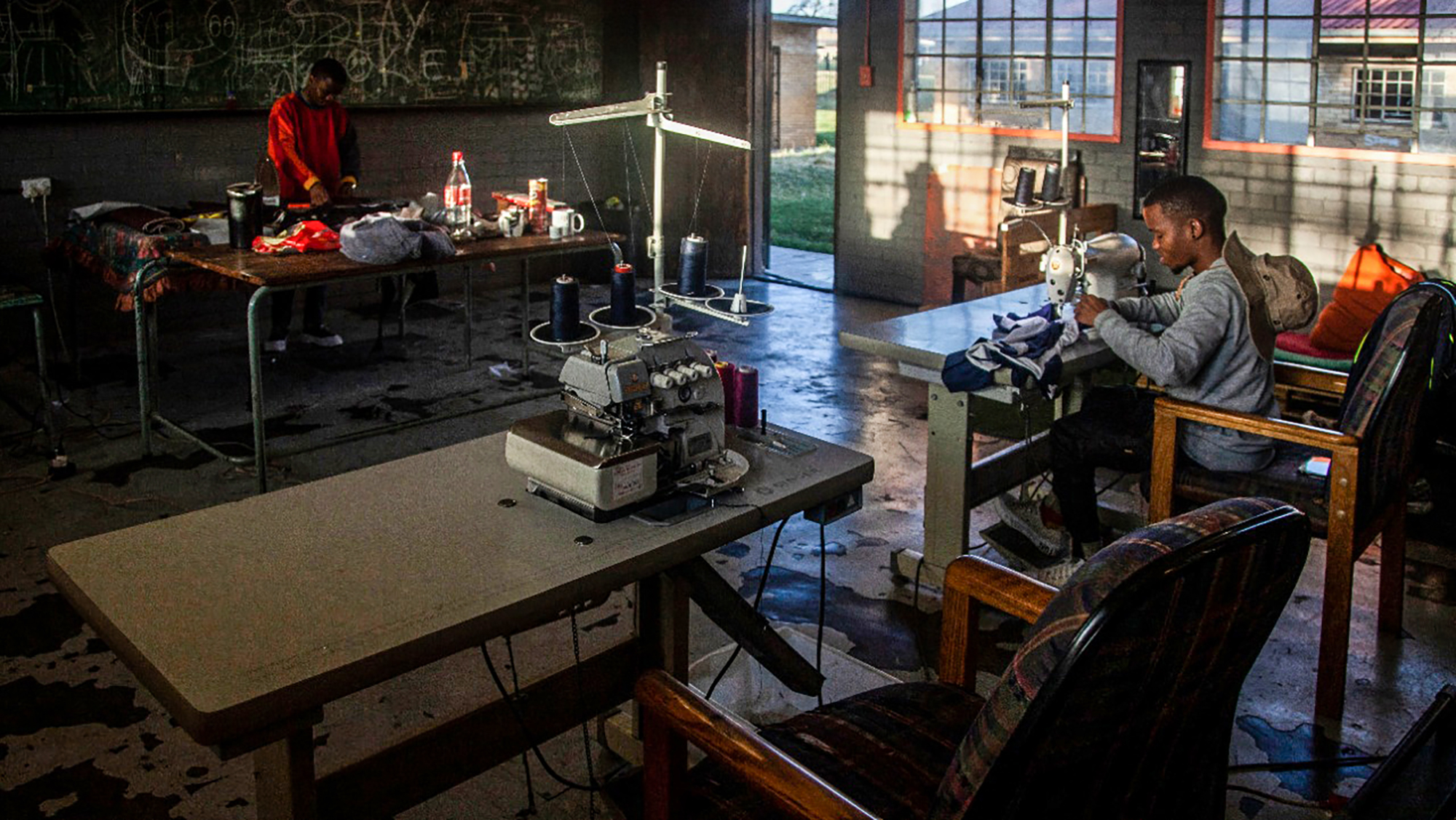
This classroom at Matubeng Primary School is now a sewing studio, run by Ashley Leolo and his twin brother. (Photo: Gopolang Ledwaba)
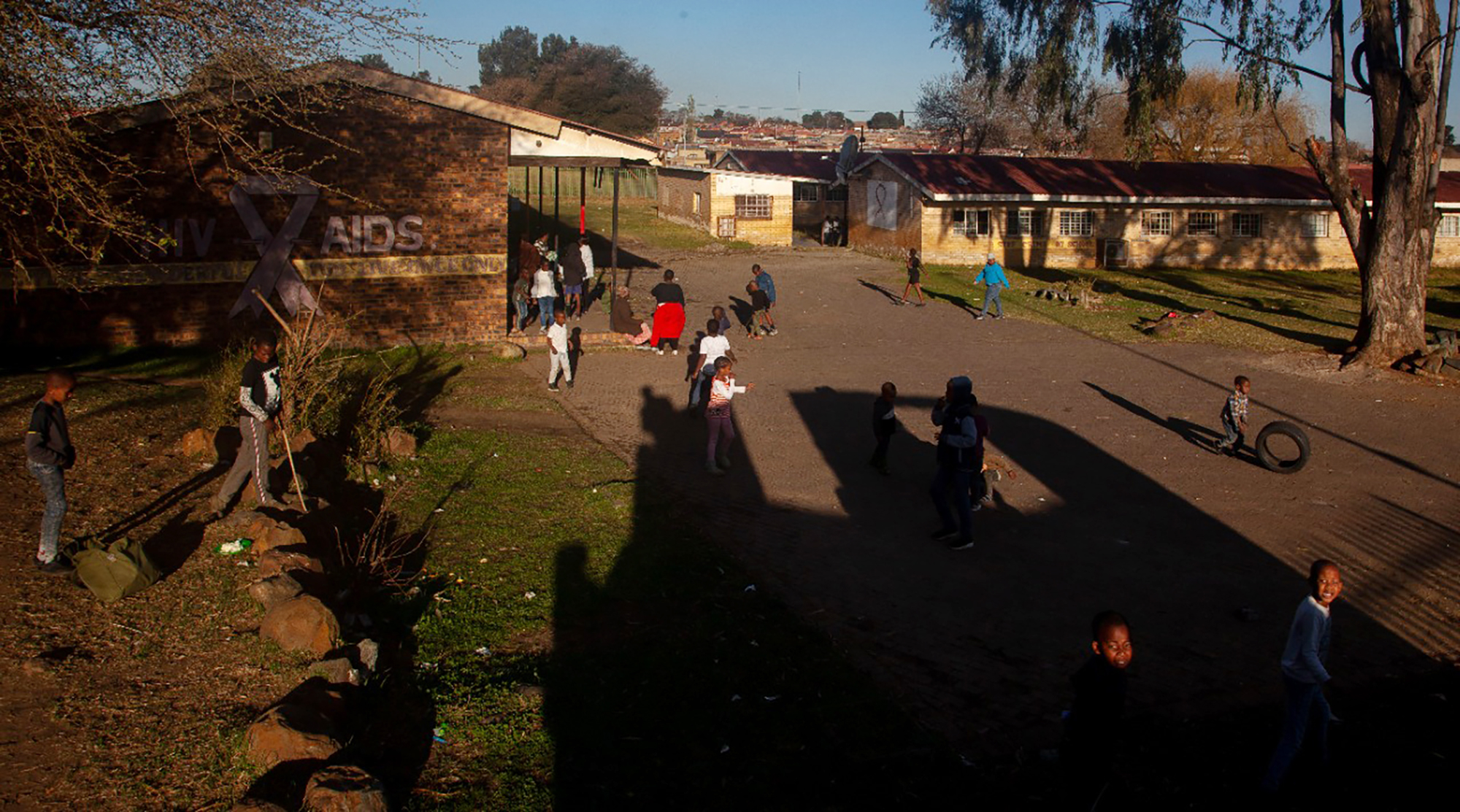
A feeding scheme is among the various projects now run from Matubeng Primary School. (Photo: Gopolang Ledwaba)
“I asked the caretaker if I could use the school and I am not paying anything for the school except that I run the entire project from my own pocket,” said Magashoa.
The school’s electricity infrastructure was still intact but there was no water because “we still have to buy a water tap”.
‘Never consulted’
In terms of the South African Schools Act 84 of 1996, the community must be consulted before the closure of any public school. Under subsection (I), the member of the executive council may not act unless he or she has conducted a public hearing with reasonable notice, to enable the community to make representations to him or her in relation to such actions.
The act further stipulates that the official closing the school must give due consideration to any such representations received.
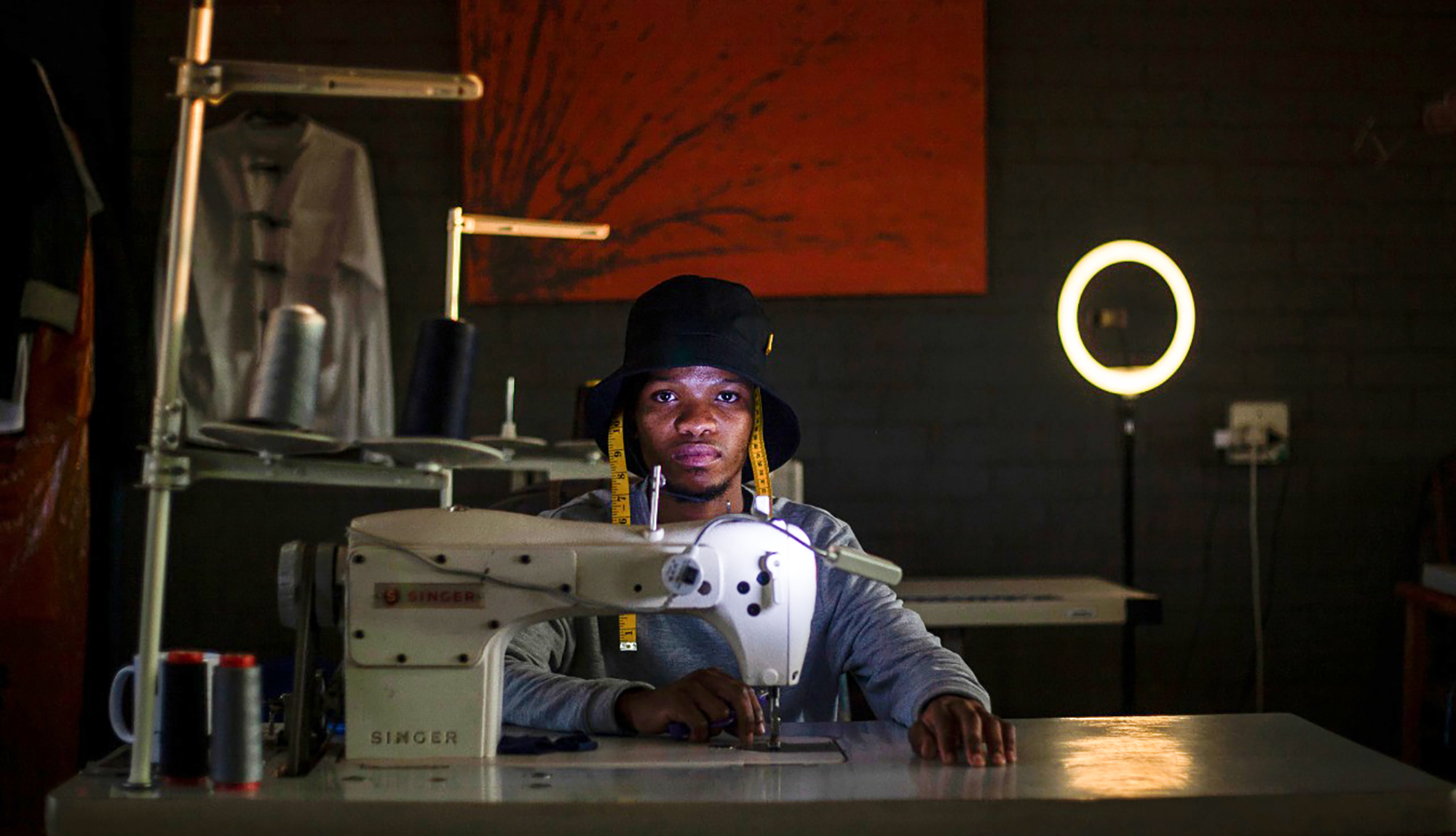
Ashley Leolo at work in an abandoned classroom at Matubeng Primary School. (Photo: Gopolang Ledwaba)
Many Soweto residents and former pupils insisted they were not consulted before the schools were closed.
Read more in Daily Maverick: “Schools bill is no betrayal, it’s a belated move to update the law”
“I don’t remember it (consultation) happening,” said Phutheko Modirwa, a former pupil at Lerechabetse Primary and a resident of Moletsane. It is one of 26 schools marked for closure by Basic Education Minister Angie Motshekga in 2013.
“It feels bad that the school had to close, but we do not have the power to challenge the decision… I have seen some people at the school but I do not know what they are doing,” Modirwa said.
Thami Nkosi (59) from Moletsane said: There are three closed primary schools in my neighbourhood and we were never consulted when they were closed down.”
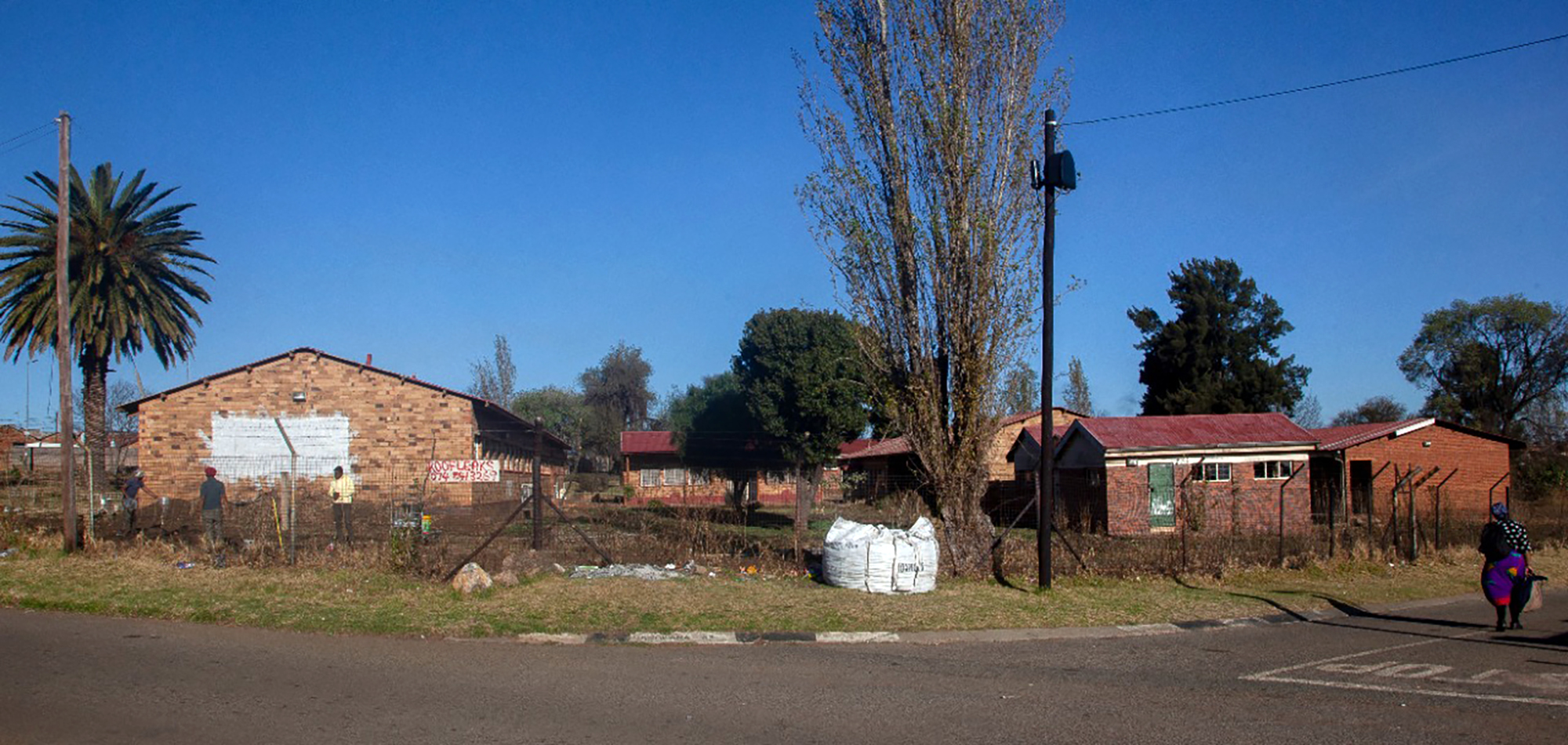
Lerechabetse Primary School is one of a number of Soweto schools used by residents for various projects. (Photo: Gopolang Ledwaba)
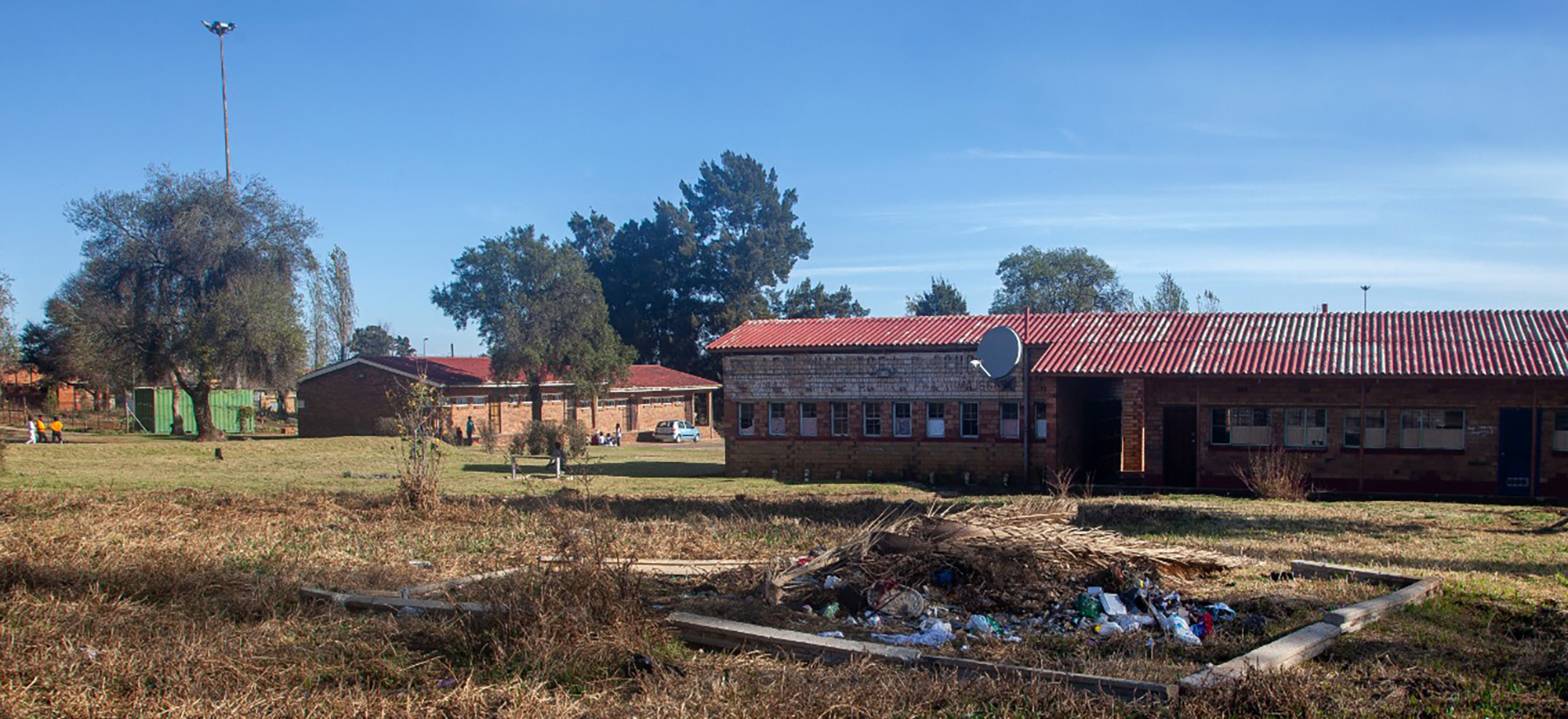
Lerechabetse Primary was one of 26 schools marked for closure by Basic Education Minister Angie Motshekga in 2013. (Photo: Gopolang Ledwaba)
According to the Basic Education Department, a primary school should have at least 135 to 310 pupils to be operational and the threshold for high schools is at least 200. This is provided for in the National minimum norms and standards for school infrastructure published in the Government Gazette.
‘Bullied’
National Association of School Governing Bodies general secretary Matakanye Matakanye said the association is opposed to the closure of schools, and “instead we are calling on the government to build more”.
“They do not respect the law, they just bully the communities by closing the schools and transfer pupils in far-flung schools, claiming they will transport them but fail to do so,” he said.
Visit Daily Maverick’s home page for more news, analysis and investigations
Matakanye said Bakgomana Primary School in Diepkloof Zone 4 was one example where the department failed to provide transport after transferring pupils and staff.
“Also, as we speak, children are not going to schools in Sedibeng District in the Vaal,” he added.
According to the provincial department, when the schools closed “an audit was taken of all the stock in the school… which would be taken to the merging school or where needed in schools across the province.”
The merging school would absorb the pupils and some of the closed school’s resources in a process called “rationalisation and redeployment” and has received wide criticism as a policy.
Read more in Daily Maverick: “Public schools are under siege: It’s time to drastically revise their funding model”
The Gauteng education department’s Mabona said this process does not affect teachers.
“Teachers who are deemed over and above the establishment of the school, are normally deployed to schools where there is a need or remain in the same school to teach but as an ‘excess’ educator.”
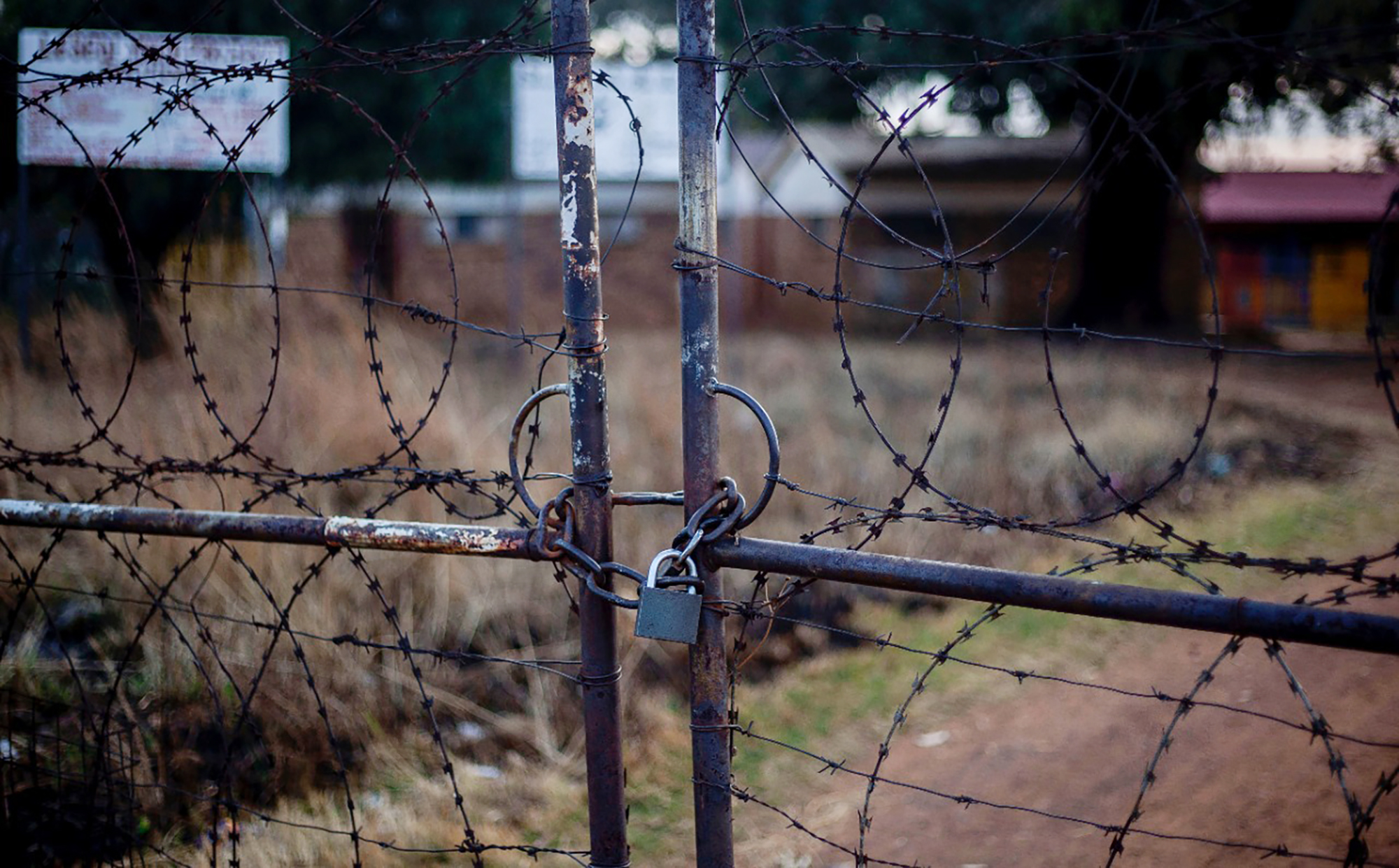
These days Phenyo Primary School hosts church services and other religious gatherings. (Photo: Gopolang Ledwaba)
Mhlanga, of the Basic Education Department, added: “Rationalisation, mergers and closure of schools helps to streamline education services which are required for effective learning and teaching to take place.”
The South African Democratic Teachers Union, on the other hand, is very much against rationalisation and redeployment. “Not in the country,” general secretary Mugwena Maluleke said when asked for the union’s views.
Many failures
South African schools have been grappling with inadequate operations and infrastructure for decades. Mud schools, overcrowding, lack of books, the Limpopo textbook debacle, no electricity, no internet connectivity, no drinking water, low staff morale and teacher shortages are just some of the failures of the education system.
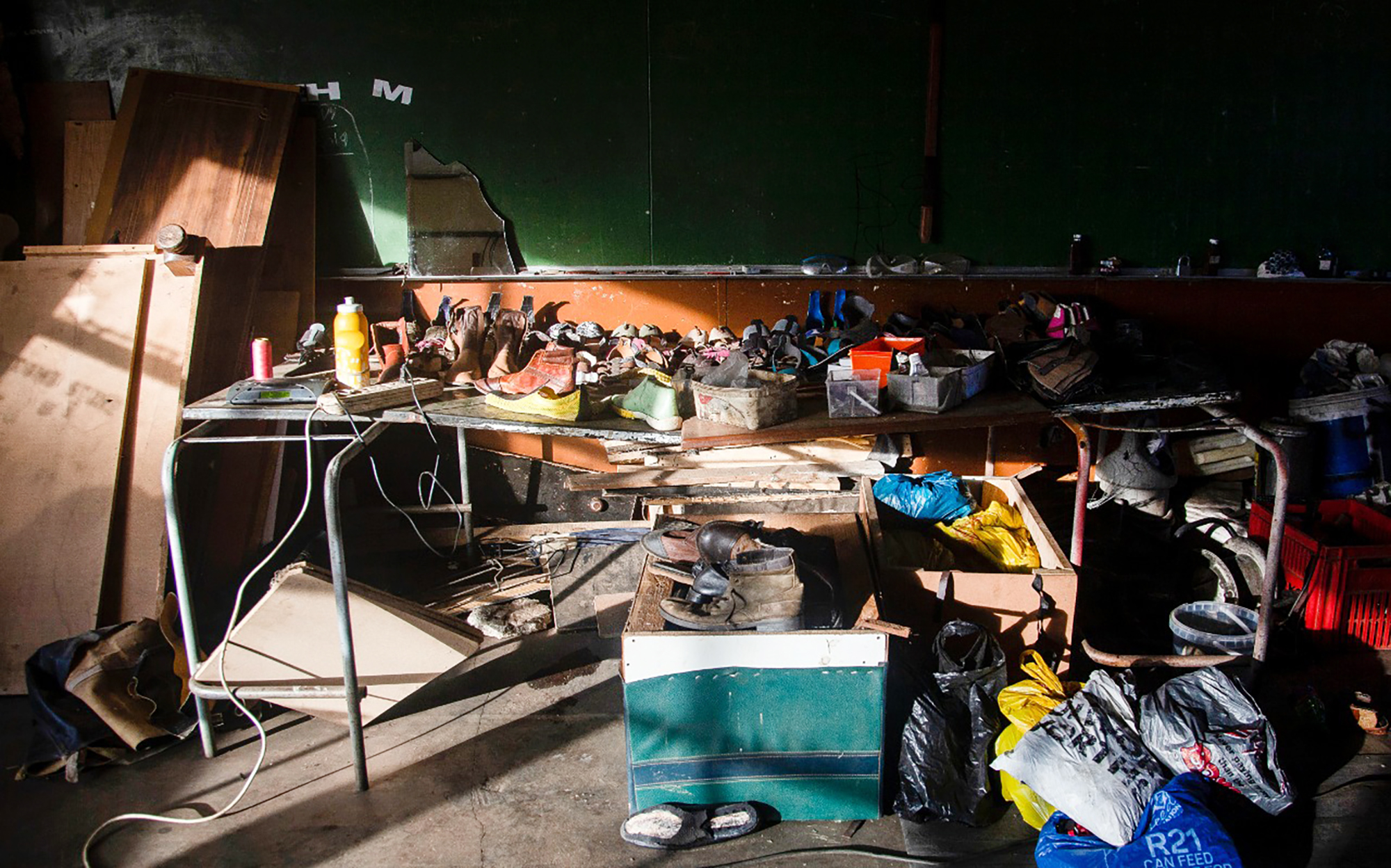
Mpho Chautsane’s shoemaking and repair business at Mabewana Primary School in Mapetla, Soweto. (Photo: Gopolang Ledwaba)
Earlier this year, a panel of experts found that 80% of Grade 4 pupils could not read for meaning.
Read more in Daily Maverick: “Makhanda public schools forced to close due to botched payroll”
Often, to get the Education Department to do what it should be doing, court action is required.
In February 2020, the Mthatha High Court ordered the Eastern Cape education department to provide 65 classrooms within 90 days after failing for years to build classrooms at four schools, some of which had close to 100 pupils in a class.
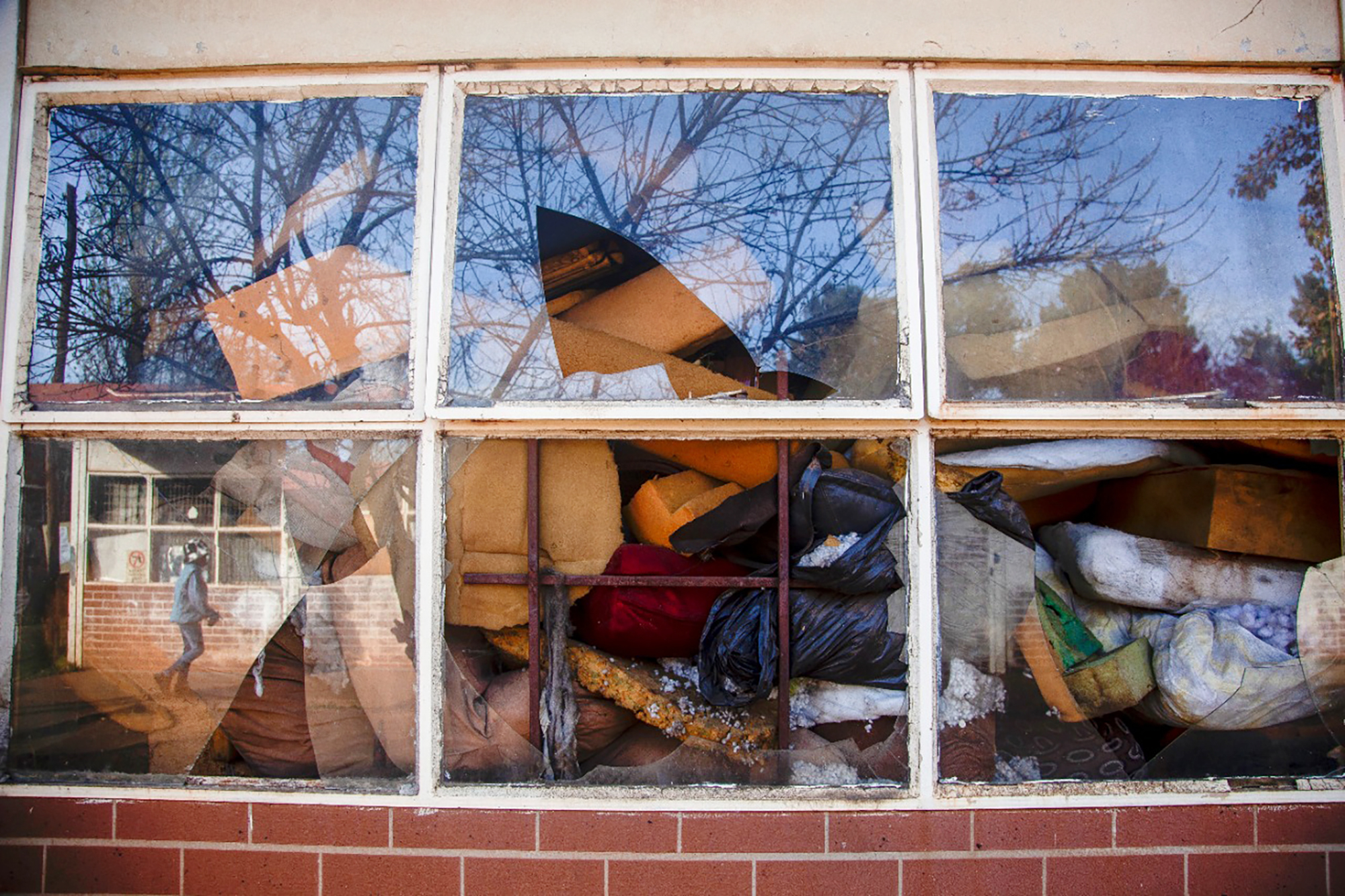
Mabewana Primary School. (Photo: Gopolang Ledwaba)
In his research paper on the effects of rationalisation and redeployment on the culture of teaching and learning, author Bharath Neresh noted: “From the research it is quite evident that the policy of rationalisation and redeployment had a negative effect on the culture of teaching and learning. It became evident that this policy was politically motivated rather than an attempt to improve the education in the country.” DM




















 Become an Insider
Become an Insider
Comments - Please login in order to comment.